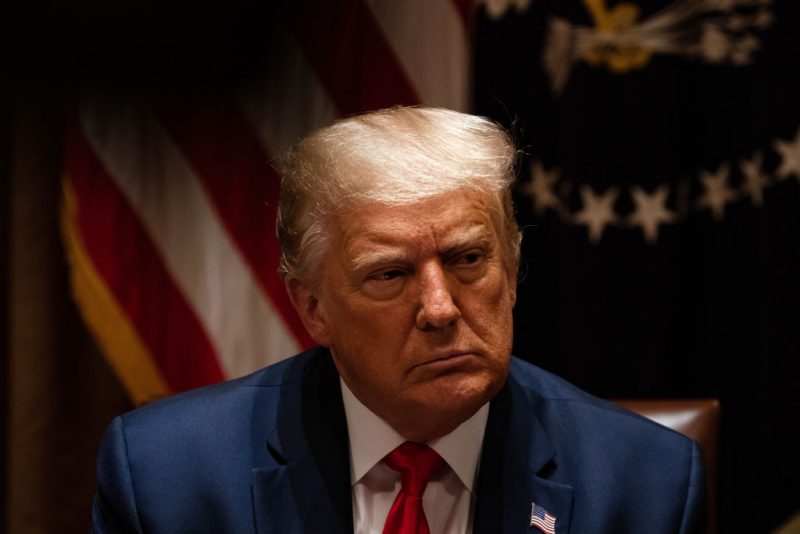

OAN’s Daniel Baldwin
9:21 AM – Friday, June 16, 2023
Former Federal prosecutor Will Scharf explained to One America News that the Department of Justice’s indictment of former President Donald Trump faces a significant issue.
Advertisement
“I think it’s going to be very difficult for the government to show that [Trump] knowingly violated the law,” Scharf, who is also running for Missouri Attorney General, said.
Scharf specifically highlighted 793(e) of the Espionage Act, the aspect of the law that involves intent.
“[Trump’s] being charged for having, in the government’s view, unlawfully withheld National Defense Information that was in his possession from a government official who was lawfully entitled to possess it or to take possession of it,” Scharf explained.
Scharf broke it down in a now viral Twitter thread, saying “Section 793(e) requires the government to prove that the Defendant KNEW he had National Defense Information (NDI) in his possession, and also that the Defendant KNEW that there was a government official entitled to receive the Information, and also that the Defendant then WILLFULLY failed to deliver it to that official.”
According to the former federal prosecutor, this adds even more complexity to a case that the DOJ wants the American people to believe is very simple.
“[The government] wants everybody to think that this is a very, very simple case, that they found some documents with classified markings at Mar-a-Lago, and that therefore President Trump has to go to jail,” Scarf told OAN. “My point is that in light of the actual statutory text and the language in the indictment, this case is a lot more complicated than that, and it’s going to be a lot tougher to prove.”
Scharf says this aspect of the Espionage Act sets a significantly high bar of mens rea, otherwise known as guilty state of mind, for the DOJ to clear in a trial.
“The question isn’t necessarily whether these documents should have been designated presidential versus personal,” Scharf explained. “The question is really what was President Trump’s intent and what was his knowledge.”
The Presidential Records Act, which special counsel Jack Smith neglected to mention once in his 49-page indictment, permits the president to choose what records to return, and what records to keep at the end of his term. The “Clinton Sock Drawer” case lays this out explicitly.
“The PRA contains no provision obligating or even permitting the Archivist to assume control over records that the President ‘categorized’ and ‘filed separately’ as personal records. At the conclusion of the President’s term, the Archivist only ‘assumes responsibility for the Presidential records.’ . . . PRA does not confer any mandatory or even discretionary authority on the Archivist to classify records. Under the statute, this responsibility is left solely to the President,” wrote Obama-appointed Judge Amy Berman Jackson.
Building off of these points, Scharf claims that there is a “very good argument” that the 45th president viewed his own documents as personal records.
“My view is that there’s a very good argument that President Trump packaged up these boxes thinking that they contained his personal records, personal memorabilia from his time in office,” said Scharf.
“If [Trump’s] intent was to retain only personal records, if that was what was in his mind, I think it’s going to be very difficult for the Special Counsel’s office to prove beyond a reasonable doubt what they’re required to prove under the Espionage Act,” Scharf continued.
Scharf claims that if Trump believed his boxes were personal records, he may have thought the National Archives did not have a claim to receive them.
“Meaning that he did not willfully withhold anything from an official he knew had the right to receive them,” Scharf wrote on Twitter. “Because he didn’t believe that anyone had the right to receive them.”
Scarf even pointed out that Smith, in his official public statement, emphasized that it was the government’s burden to prove that Trump was guilty beyond a reasonable doubt. And given the obligations and rights bestowed upon a president under the PRA, Scharf says that will be a difficult, if not impossible, hill for the DOJ to climb.
Stay informed! Receive breaking news blasts directly to your inbox for free. Subscribe here. https://www.oann.com/alerts






Be the first to comment